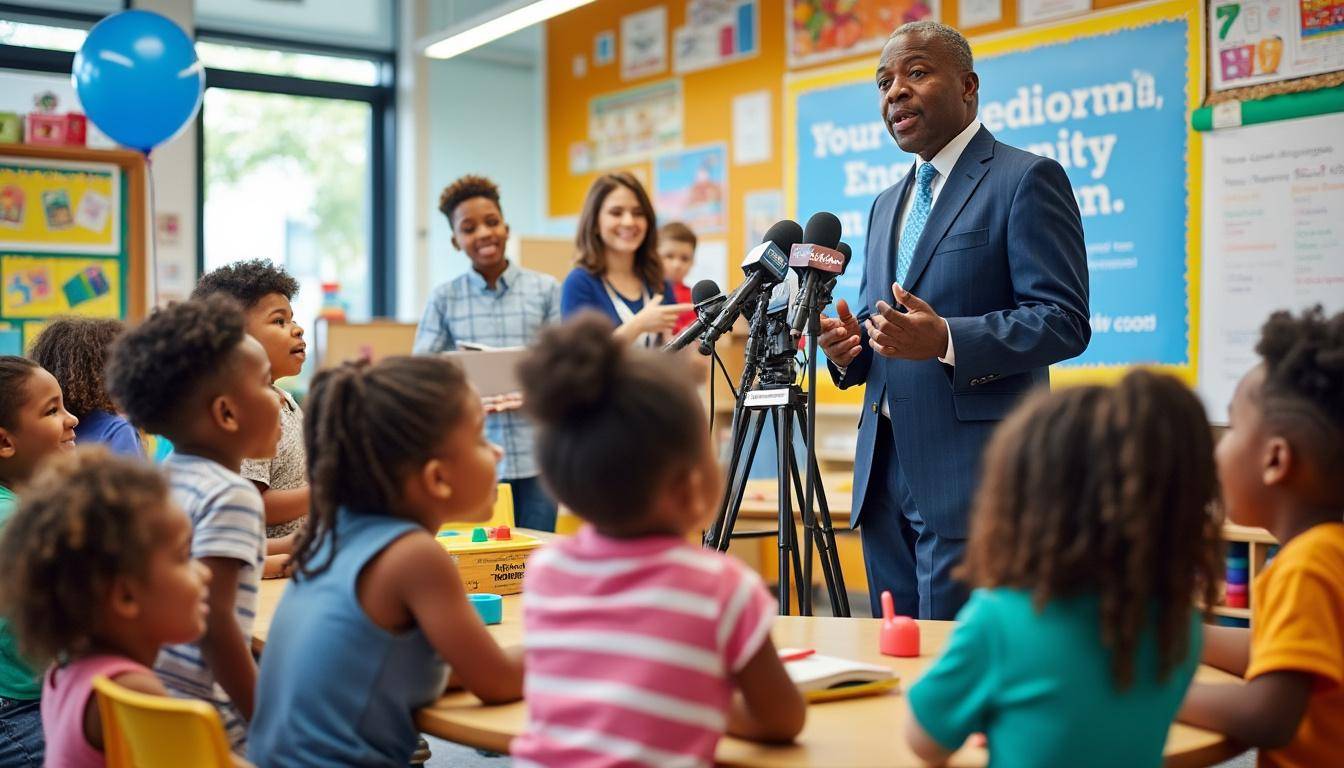Mayor Eric Adams has announced a significant $80 million investment to strengthen early childhood education in New York City. This initiative, embedded within the Fiscal Year 2026 Adopted Budget, aims to provide expanded childcare services and enhanced educational programs, particularly focusing on pre-K special education students and families with young children. As NYC continues to position itself as the best place to raise a family, these investments underscore a dedicated effort toward inclusive child learning and equitable access to quality early education.
Major Investments in NYC Education to Support Early Childhood Development
Mayor Adams’ recent funding announcement targets two critical areas within the early childhood development landscape:
- $70 million allocated to support pre-K special education students who require specialized services like speech therapy, occupational therapy, and physical therapy.
- $10 million dedicated to launching a pioneering childcare pilot for infants and toddlers (ages 0-2) aimed at low-income families, marking a historic expansion in child learning opportunities for the youngest New Yorkers.
By directing resources into both specialized educational programs and foundational childcare services, the city is addressing systemic barriers faced by working-class families and children with disabilities. The pre-K special education funding specifically will help reduce waiting times for families and double the capacity of Preschool Regional Assessment Centers, thereby improving timely access to necessary early interventions.
Expanding Universal Pre-K and Early Childhood Intervention Services
This $80 million investment builds on Mayor Adams’ historic efforts to establish universal 3-K and pre-K access across New York City. Key components include:
- Additional funding for related services such as speech and occupational therapies, providing $50 million to enhance care for preschoolers with disabilities.
- Support for administrative staff with $10 million allocated to reduce caseloads and improve community coordination to better assist families.
- Capacity enhancements for NYC Public Schools to conduct preschool special education evaluations, adding $10 million to streamline processes and ease family burdens.
These measures not only improve individual child development outcomes but also contribute to broader public policy goals of inclusivity, equity, and community support. The announced childcare pilot for 0-2 year-olds stands out as a bold step toward universal childcare coverage in a major US city, potentially serving as a model for other municipalities.
The Impact of Enhanced Childcare Services on NYC Families
Access to affordable and high-quality childcare remains a pressing challenge for many families in New York City. Research has shown that lack of childcare options has forced nearly 375,000 parents to reduce their work hours or leave the workforce entirely. Mayor Adams’ investment addresses this by:
- Providing a childcare pilot program that targets the critical early years (0-2), helping families balance work and child learning needs.
- Reducing childcare co-payments dramatically; for families making $55,000 annually, costs have fallen from $55 per week in 2022 to under $5 per week today.
- Ensuring more equitable access to childcare and educational programs for low-income communities, reinforcing NYC’s commitment to being a family-friendly city.
This initiative is further supported by nonprofit organizations and advocates who emphasize the vital role of early childhood development in long-term educational success and economic mobility. Educators continue to highlight early learning as foundational for future academic achievement, making these investments timely and impactful.
Community Support and Partnerships Driving Educational Success
Collaboration among city agencies, nonprofit organizations, and community groups is instrumental in implementing these early childhood initiatives. The new budget fosters such cooperation by:
- Partnering NYC Public Schools with the Mayor’s Office of Early Childhood Education to recruit childcare providers for the infant and toddler pilot program.
- Involving stakeholder feedback to gauge childcare demand and tailor services to the diverse needs of New York City’s neighborhoods.
- Strengthening links between families, educational programs, and community supports to ensure children receive holistic care and learning opportunities.
These efforts align with broader public policy commitments to address educational disparities and support the city’s most vulnerable populations. Advocates underscore that such community-oriented investments not only bolster child learning but also foster economic resilience among working families. See how early education programs are evolving across the nation, including updates on initiatives like Oregon’s early learning struggles and accessibility improvements in Arizona, by exploring resources such as Oregon’s early learning challenges and Arizona’s efforts to expand early education accessibility.


